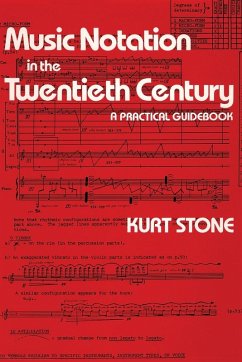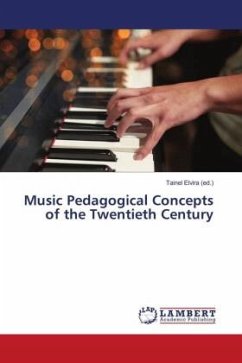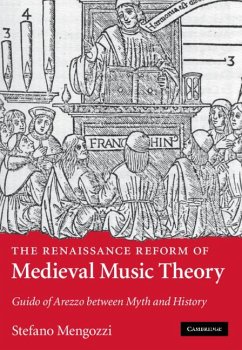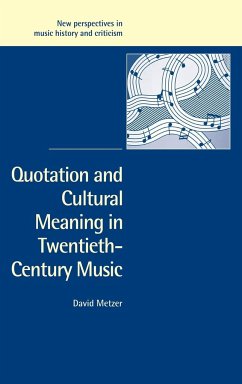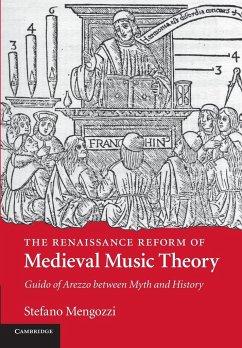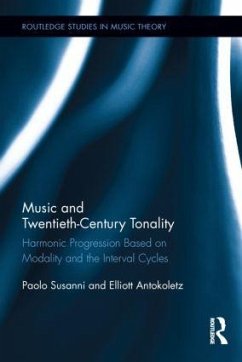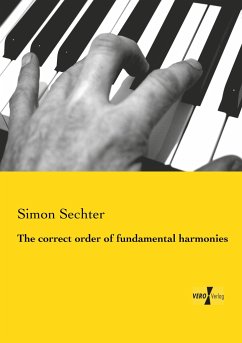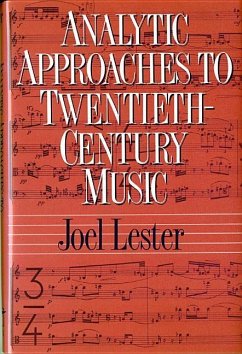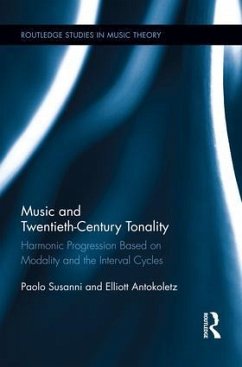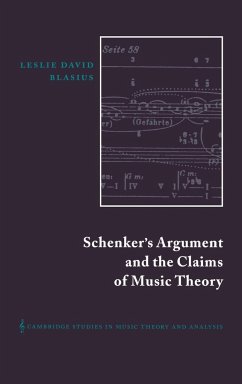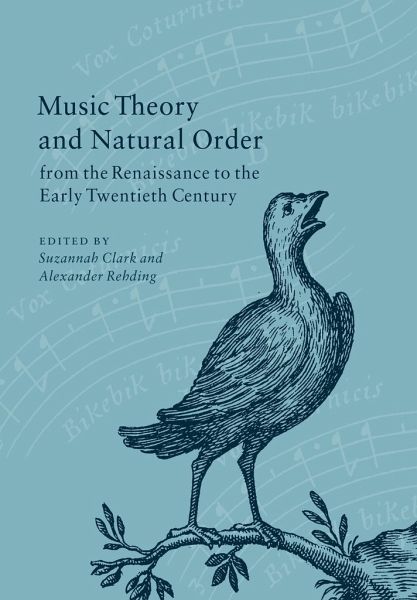
Music Theory and Natural Order from the Renaissance to the Early Twentieth Century
Versandkostenfrei!
Versandfertig in 1-2 Wochen
49,99 €
inkl. MwSt.

PAYBACK Punkte
25 °P sammeln!
Explores the ways music theory has represented and employed natural order since the scientific revolution.Music theory of almost all ages has relied on nature in its attempts to explain music. The understanding of what 'nature' is, however, is subject to cultural and historical differences. In exploring ways in which music theory has represented and employed natural order since the scientific revolution, this volume asks some fundamental questions not only about nature in music theory, but also the nature of music theory. In an array of different approaches, ranging from physical acoustics to ...
Explores the ways music theory has represented and employed natural order since the scientific revolution.
Music theory of almost all ages has relied on nature in its attempts to explain music. The understanding of what 'nature' is, however, is subject to cultural and historical differences. In exploring ways in which music theory has represented and employed natural order since the scientific revolution, this volume asks some fundamental questions not only about nature in music theory, but also the nature of music theory. In an array of different approaches, ranging from physical acoustics to theology and Lacanian psychoanalysis, these essays examine how the multifarious conceptions of nature, located variously between scientific reason and divine power, are brought to bear on music theory. They probe the changing representations and functions of nature in the service of music theory and highlight the ever-changing configurations of nature and music, as mediated by the music-theoretical discourse.
Review quote:
"...the variety and high-quality of the nine articles in this volume are impressive indeed...The excellent essays which form this volume, although focused specifically on music and music theory, are case studies of the universal tendency to substantiate ideology by means of appeals to "nature" and "natural order" and, as such, are certainly of general interest."
Renaissance Quarterly
Table of contents:
Part I. The Disenchantment and Re-enchantment of Music: 1. Vincenzo Galilei, modernity and the division of nature Daniel Chua; 2. 'Tis nature's voice': music, natural philosophy and the hidden world in seventeenth-century England Linda Phyllis Austern; 3. The 'gift of nature': musical 'instinct' and musical cognition in Rameau David Cohen; 4. Nietzsche, Riemann, Wagner: when music lies Leslie David Blasius; Part II. Natural Forms - Forming Nature: 5. The second nature of sonata form Scott Burnham; 6. August Halm's two cultures as nature Alexander Rehding; 7. Seduced by notation: Oettingen's topography of the major-minor system Suzannah Clark; Part III. Constructions of Identity: 8. The gendered eye: music analysis and the scientific outlook in German early Romantic music theory Ian Biddle; 9. On the primitives in music theory: the savage and subconscious as sources of analytical authority Peter A. Hoyt.
Music theory of almost all ages has relied on nature in its attempts to explain music. The understanding of what 'nature' is, however, is subject to cultural and historical differences. In exploring ways in which music theory has represented and employed natural order since the scientific revolution, this volume asks some fundamental questions not only about nature in music theory, but also the nature of music theory. In an array of different approaches, ranging from physical acoustics to theology and Lacanian psychoanalysis, these essays examine how the multifarious conceptions of nature, located variously between scientific reason and divine power, are brought to bear on music theory. They probe the changing representations and functions of nature in the service of music theory and highlight the ever-changing configurations of nature and music, as mediated by the music-theoretical discourse.
Review quote:
"...the variety and high-quality of the nine articles in this volume are impressive indeed...The excellent essays which form this volume, although focused specifically on music and music theory, are case studies of the universal tendency to substantiate ideology by means of appeals to "nature" and "natural order" and, as such, are certainly of general interest."
Renaissance Quarterly
Table of contents:
Part I. The Disenchantment and Re-enchantment of Music: 1. Vincenzo Galilei, modernity and the division of nature Daniel Chua; 2. 'Tis nature's voice': music, natural philosophy and the hidden world in seventeenth-century England Linda Phyllis Austern; 3. The 'gift of nature': musical 'instinct' and musical cognition in Rameau David Cohen; 4. Nietzsche, Riemann, Wagner: when music lies Leslie David Blasius; Part II. Natural Forms - Forming Nature: 5. The second nature of sonata form Scott Burnham; 6. August Halm's two cultures as nature Alexander Rehding; 7. Seduced by notation: Oettingen's topography of the major-minor system Suzannah Clark; Part III. Constructions of Identity: 8. The gendered eye: music analysis and the scientific outlook in German early Romantic music theory Ian Biddle; 9. On the primitives in music theory: the savage and subconscious as sources of analytical authority Peter A. Hoyt.





